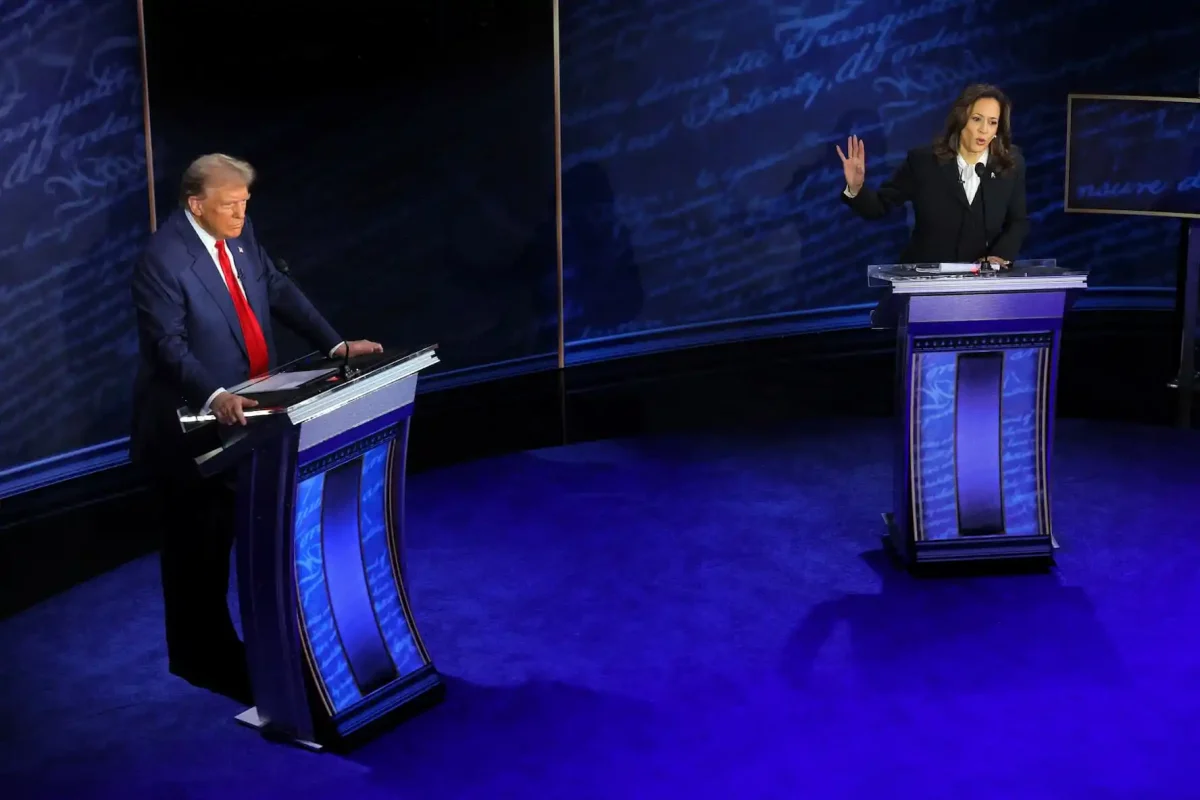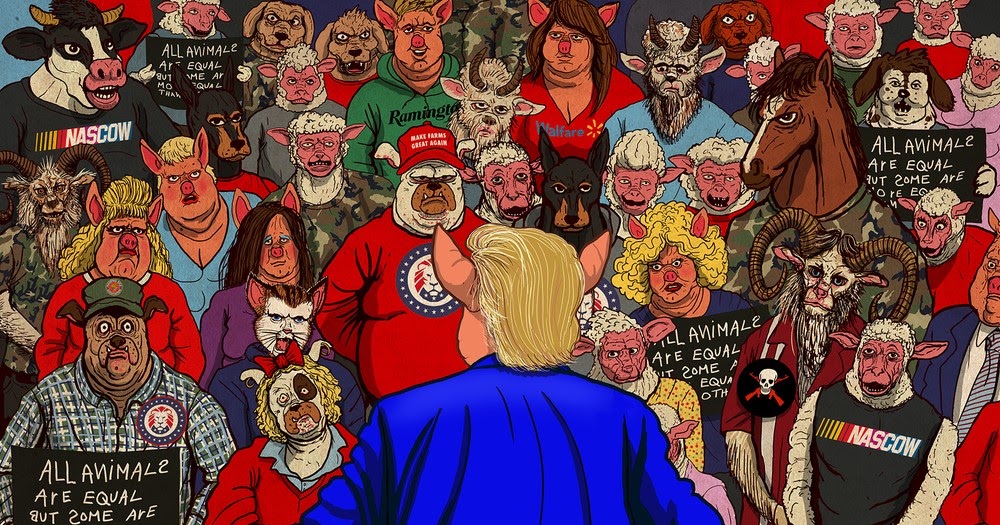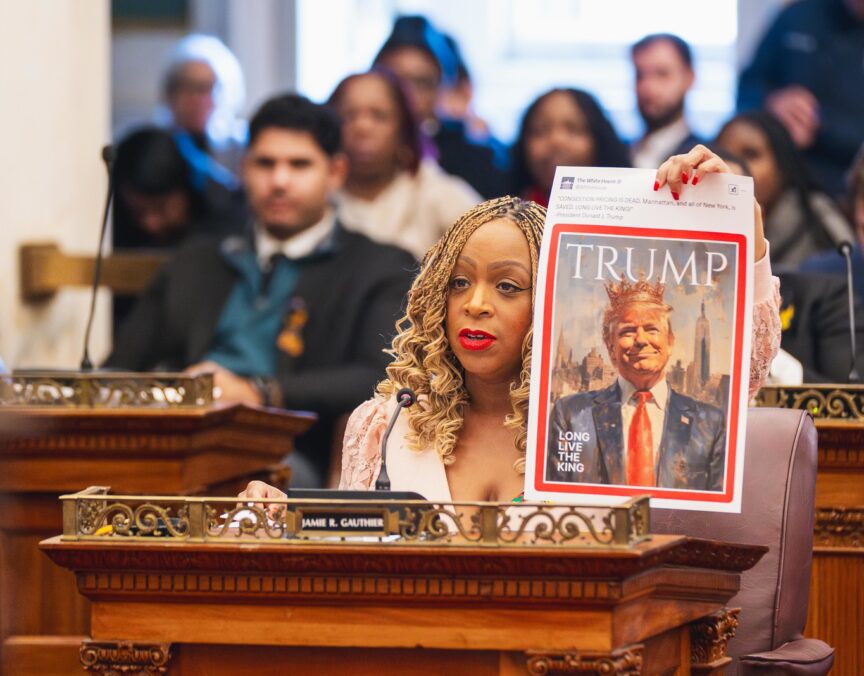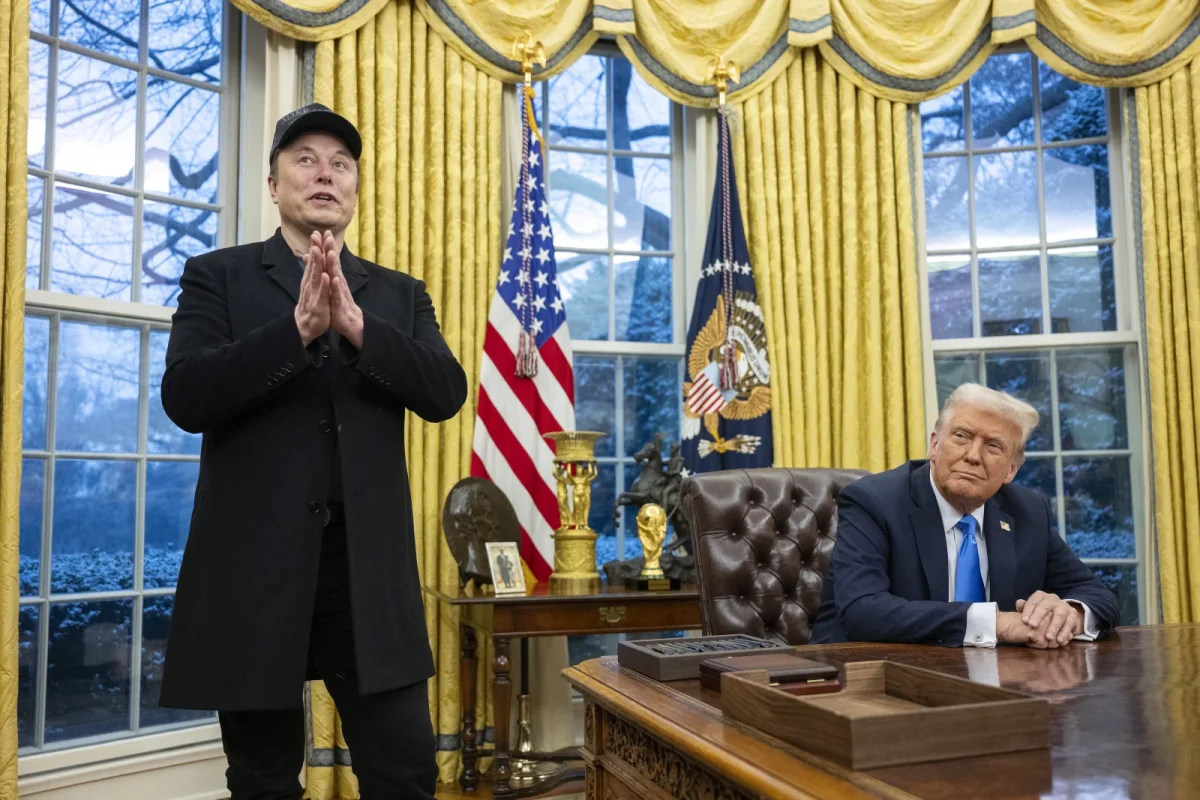Long gone are the days when Donald Trump eviscerated his opponents in debates with nicknames and witty one-liners. Bullying Jeb Bush by calling him “low energy,” saying Rand Paul did not belong on the debate stage and giving his famous line, “Cuz you’d be in jail,” in response to Hillary Clinton saying she feared him becoming president. The debate showed Trump completely out of control and unable to avoid taking the most obvious bait in the world.
The debate began with Kamala Harris walking over to Trump’s podium to shake his hand, a foreshadowing of how events would turn out. Harris would have complete control over the debate, baiting and trapping Trump into succumbing to his worst impulses.
Trump in the first 15 minutes or so was doing fine. It was nothing spectacular, but he was calm and delivered a consistent message, attempting to tie Harris to Joe Biden’s unpopular policies. Soon, things unraveled. When abortion came up, he could have distanced himself from the unpopular extreme anti-abortion bans that have been passed in many red states, or avoided the question, since abortion is the worst issue for Republicans.
Trump gave no clear answers, instead, he went on a barely coherent rant about nonexistent post-birth abortions, mistaking Virginia and West Virginia, attempting to paint Democrats as the real extremists on abortion and he took credit for the overturn of Roe v. Wade. He claimed to support exceptions for rape and incest and to be against a national abortion ban, but that was overshadowed by his support for the Dobbs v. Jackson Women’s Health Organization decision. It was the worst answer he could have given. Harris swiftly attacked Trump, claiming he is the reason abortion rights have regressed all across the country.
The pièce de résistance of the night, in my view, was when Harris mocked his rallies. It came after she was asked about immigration and the border crisis. Harris touted her experience prosecuting international gangs and attacked Trump for tanking the bipartisan border bill that would tighten border security because Trump did not want Biden to take credit for it. At the end of her critiques on Trump’s killing of the border bill, she slipped in, “People start leaving his rallies early out of exhaustion and boredom,” and he immediately fell apart. He claimed that his rallies were the best, people loved them and the crowds were huge. He also claimed that illegal immigrants in Springfield, Ohio were eating cats and dogs. Instead of responding to Harris’ comments on immigration, Trump’s strongest policy advantage, he could not help but pathetically boast about his rallies. It was all downhill from there.
Other noteworthy moments from the debate include Trump’s “I have concepts of a plan” answer in response to what he would do about healthcare, Kamala making overtures to the Polish-American community in Pennsylvania by arguing that Putin will not stop in Ukraine and Harris calling out Trump’s divisive rhetoric on race when he was asked to explain his comments accusing Harris of not being Black.
Trump faltered under the weight of his failures. Harris, for all the praise I have heaped on her, would have probably done worse with someone who was focused and not almost an octogenarian. Nonetheless, because of Trump’s inability to control himself and stay on a consistent message, Harris wiped the floor with him. She exploited Trump’s number one weaknesses, his impulsiveness and fragile ego, to her benefit.
The only vice presidential debate, strangely, had the opposite dynamic. Senator J.D. Vance was calm, cool and collected. But Tim Walz was nervous, furiously writing notes and fumbling his words.
Vance needed this debate to improve his disastrous public image. Going into the debate, he was even more unpopular than Sarah Palin. This negative public image is due to controversial comments he made in past interviews, podcast appearances and public appearances. In addition to the infamous “childless cat ladies” comment, he has said that people in abusive marriages should not get divorced for the sake of the kids and called for a national ban on abortion. Vance’s goal for the debate was to repair his reputation.
Vance throughout the debate was clear and focused, in stark contrast to the man at the top of the Republican ticket. Although he spoke more eloquently than either Trump or Walz, he lied like Trump all the same. He repeated the lie about Haitians in Springfield eating pets, claimed that the Haitians were in the U.S. illegally despite their legal status and lamented the fact that he was being fact-checked by the moderators.
The best moment for Vance came, surprisingly, on the question of abortion. He talked about the need for the Republican Party to win back the shattered trust of voters, and he is right. On multiple ballot questions, the anti-abortion side lost. On the surface, this comment sounded promising, but ultimately Vance failed to articulate how they would regain the trust of voters on the abortion question.
Walz fulfilled the rule of “do no harm,” which is to say he was not the best performer. He looked nervous, was fidgety and tripped over his words. His most embarrassing slip-up was when he said he had “become friends with school shooters” when he meant to say he befriended the victims and their families. His performance, lackluster as it was, contained some decent moments for him. Walz endearingly referred to himself as a “knucklehead at times” and played up his small roots and a Minnesota nice persona. Instead of trying to best Vance in a battle of wits, Walz took the route of trying to appear as a nice guy you could have a beer with. Was it effective? That is for you to decide.
Walzs’ best moment came at the end. Vance refused to say whether Trump lost the election, instead wanting to “focus on the future.” Walz did not hold back, saying that Vance’s response was a “damming non-answer.” Initially, Vance achieved his goal of improving his public image, but his approval ratings returned to pre-debate levels. The general public has returned to admonishing him. Post-debate polling showed that people were tied as to who won. With a CBS poll showing 42-41 Vance winning. In the same pool, voters thought that both candidates were reasonable and that the debate had a positive tone. In a focus group conducted by political strategist Sarah Longwell, voters liked the civility of the debate and thought Vance performed well, but felt they could not trust him. All of this proves an old political axiom, Vice Presidential debates do not matter.
The most striking thing about this debate was how civil and cordial it was compared to the mean-spirited chaos of the last decade of Trump. Vance and Walz at various points expressed agreement, shook hands, and for the most part, stuck to discussing policy. Vance expressed condolences when Walz mentioned that his son Gus witnessed a shooting. A reminder of what debates used to look like.
Eventually, Trump will leave the political scene, either voluntarily or til death do us part. So what does the vice presidential debate say about the future? Could this debate be a sign of what the American political landscape could look like post-Trump? I think so. We could return to some semblance of a pre-Trump normal, but with a twist. Trump picking Vance shows he wants to double down on MAGA and America First philosophy and that these policies will be carried onto the future. Economic nationalism, anti-immigration, anti-intellectualism, Christian nationalism, isolationism and admiration for illiberal regimes such as that of Orban’s Hungary is here to stay. Trumpism will stay but with the veneer of civility.










